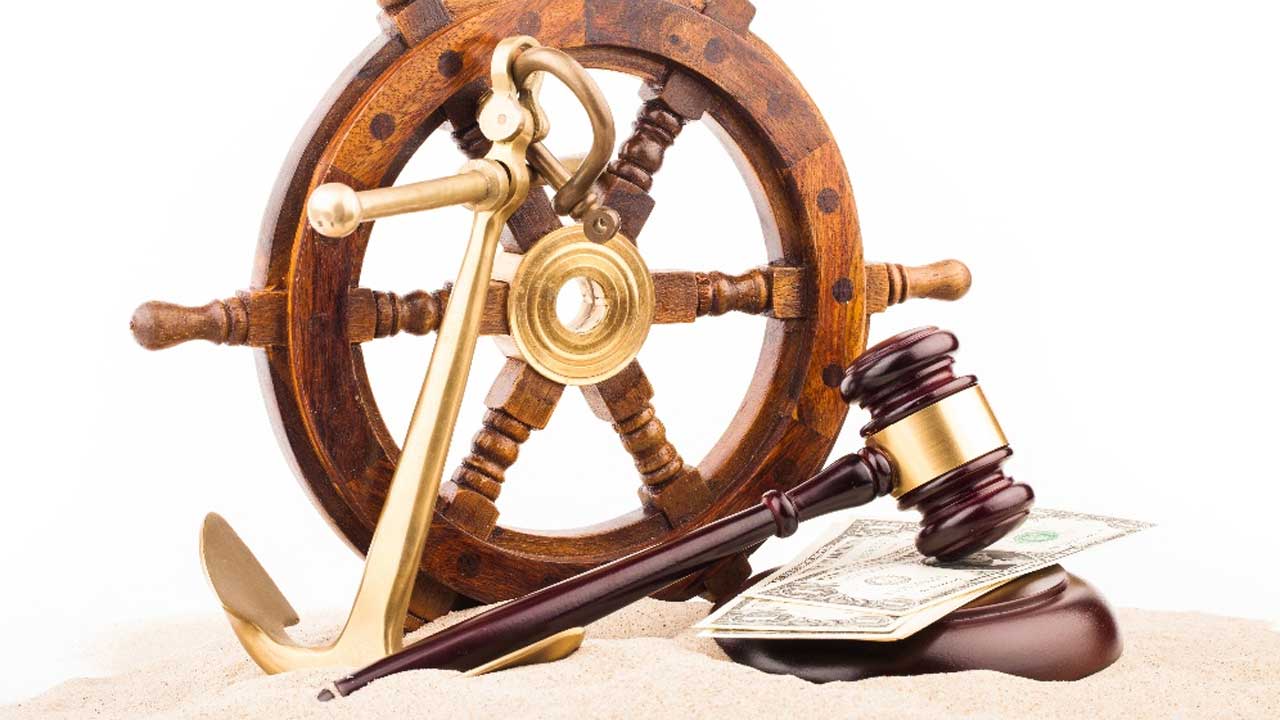- Civil Law
- Criminal Law
- Service Law
- Constitutional Law
- Land Revenue Law
- NDPS
- Corporate & Company Law
- Bankruptcy & Insolvency Law
- Sarfaesi & Rddbfi
- Customs / Import & Export
- Income Tax
- Gujctoc
- GST
- HR Employment & Labour Law
- Insurance Law
- Cyber Law
- Real Estate & Town Planning Law
- Family Law
- Telecommunication
- Infrastructure
- Pharmaceutical
- Health Care Law
- Consumer Law
- Trust Law
- Maritime Law
- Copywrite & Trademark Law
- Arbitration Law

Maritime Law
Maritime law, also known as admiralty law, is a specialized area of law that governs legal issues and activities that occur on navigable waters. This includes both inland and international waters, and it covers a wide range of matters related to shipping, navigation, marine commerce, and marine activities. Maritime law is essential for regulating the relationships among parties involved in maritime trade, transportation, and navigation. Here are key aspects of maritime law:
Jurisdiction and Applicability:
- Maritime law may apply to issues that occur on the high seas, international waters, and navigable inland waters.
- It is often governed by international conventions and treaties, but individual countries may also have their own maritime laws.
Admiralty Courts:
- Many countries have specialized admiralty or maritime courts that handle cases related to maritime law. These courts have jurisdiction over maritime disputes.
Collision and Salvage:
- Maritime law addresses issues related to collisions between ships and the salvage of vessels and cargo. Rules and procedures are in place to determine liability and compensation for damages.
Carriage of Goods by Sea:
- Maritime law governs contracts for the transportation of goods by sea. The Hague-Visby Rules and the Hamburg Rules are international conventions that establish rights and responsibilities in such contracts.
Marine Insurance:
- Maritime law covers issues related to marine insurance, including policies that protect against various risks such as damage to the ship, cargo, or liability for injuries.
Maritime Liens:
- A maritime lien is a legal claim against a vessel or its cargo to secure payment for debts related to the vessel, such as wages, salvage, or repairs. Maritime law provides for the enforcement of these liens.
General Average:
- In the event of a maritime emergency where some cargo or property is sacrificed for the common good, the concept of general average allows the costs to be shared proportionally among all parties with a financial interest in the voyage.
Limitation of Liability:
- Shipowners may limit their liability for certain claims arising from incidents such as collisions or personal injuries, subject to specified conditions.
Maritime Pollution:
- Laws and regulations exist to address the prevention and cleanup of marine pollution. These may be governed by international agreements, such as the MARPOL Convention.
Cruise Ship Regulations:
- Specific regulations apply to the operation and safety of cruise ships, covering areas like passenger safety, environmental protection, and liability issues.
Maritime law is an evolving field that responds to changes in technology, trade practices, and environmental concerns. International cooperation is crucial in addressing maritime issues, and various international organizations and conventions play a role in shaping and influencing the development of maritime law.
